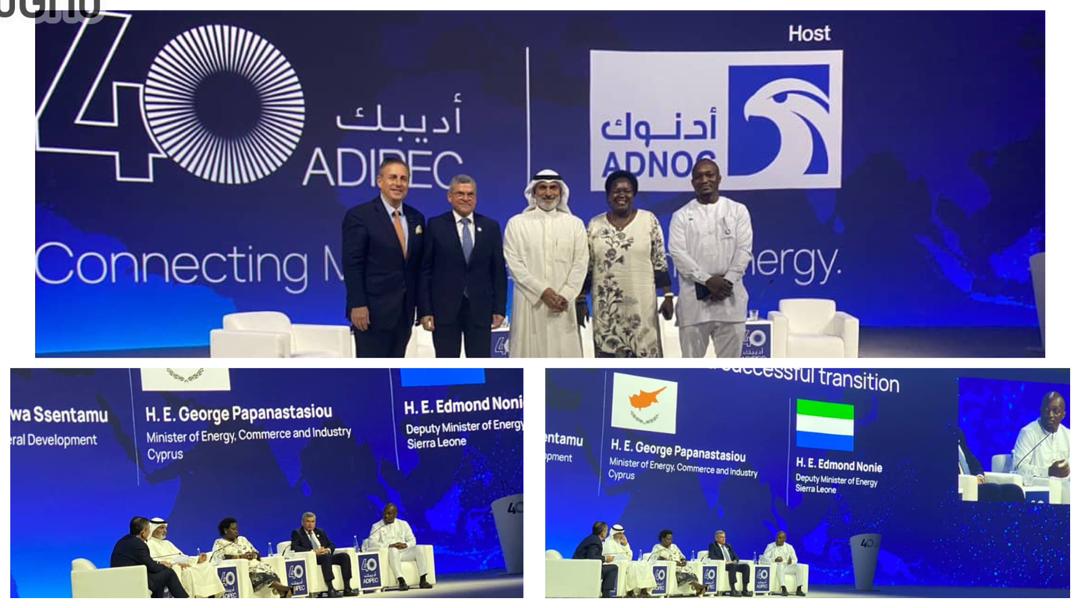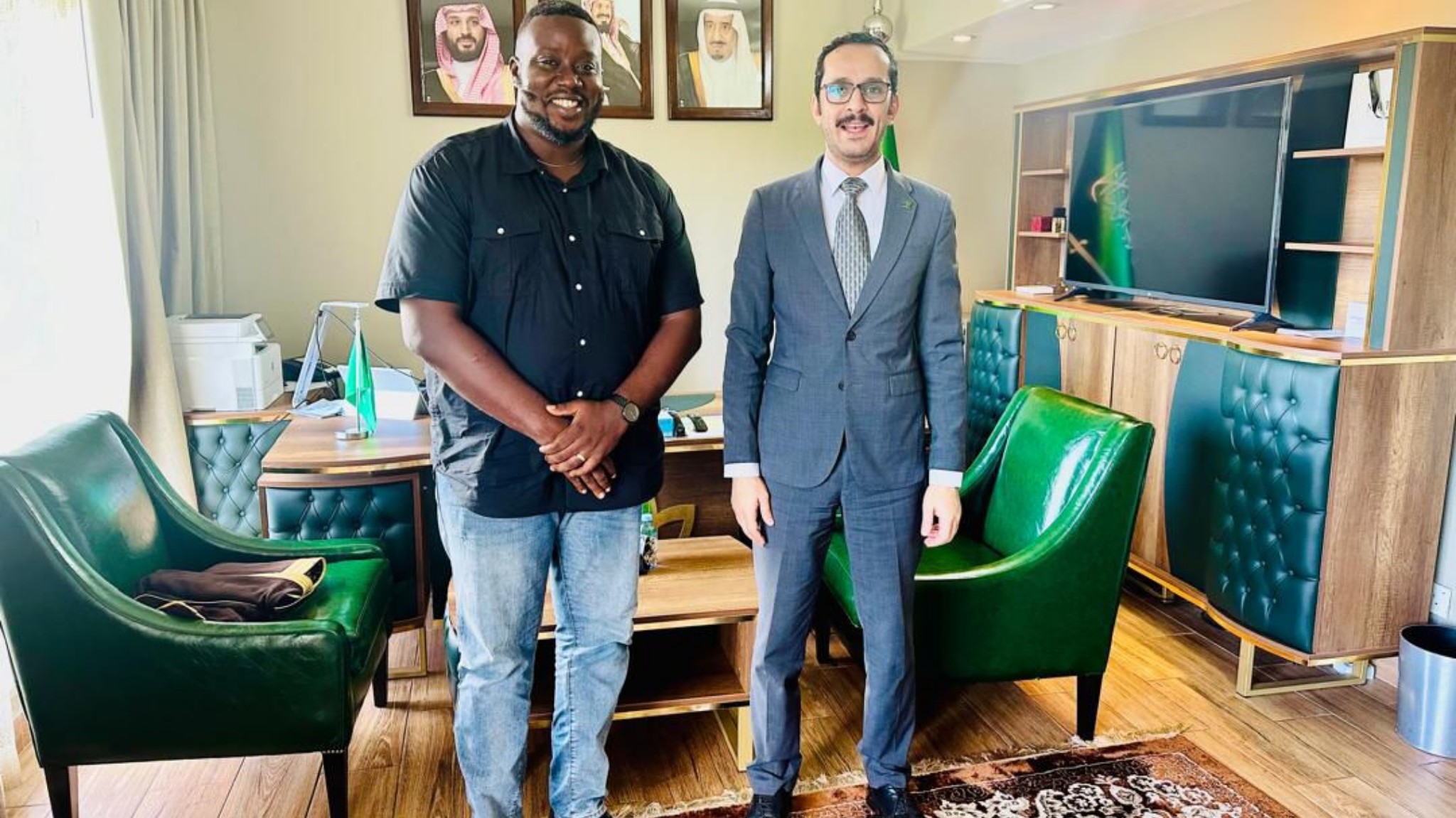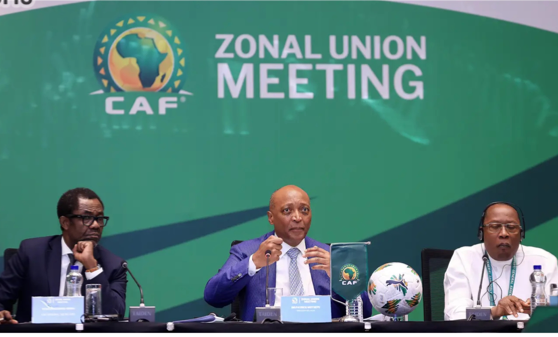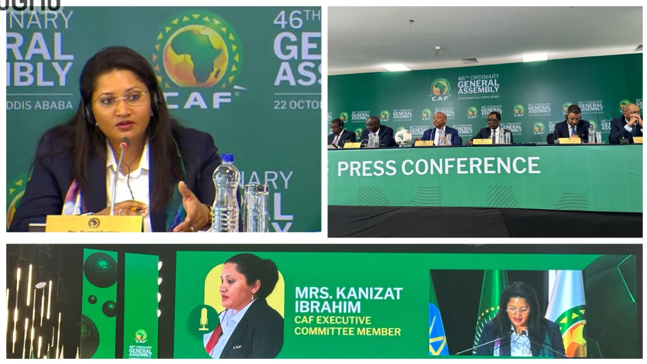
By Jida KIZ Kamara
The 5th Vice-President of the Confederation of African Football (CAF), Madam Kanizat Ibrahim and Head of Women Football during the CAF 46th Ordinary General Assembly Press Conference in Addis Ababa, Ethiopia expressed her passion and determination to develop women’s football across Africa.
One of the key points Madam Ibrahim highlighted during the press conference was the need for private sector investment in women’s football.
While CAF is committed to improving the game, she emphasized that financial support from the private sector would greatly contribute to the growth and development of female football in Africa.
The progress of women’s football in Africa is undeniable, and Madam Ibrahim is proud to note that it has been steadily improving and gaining recognition at the international stage.
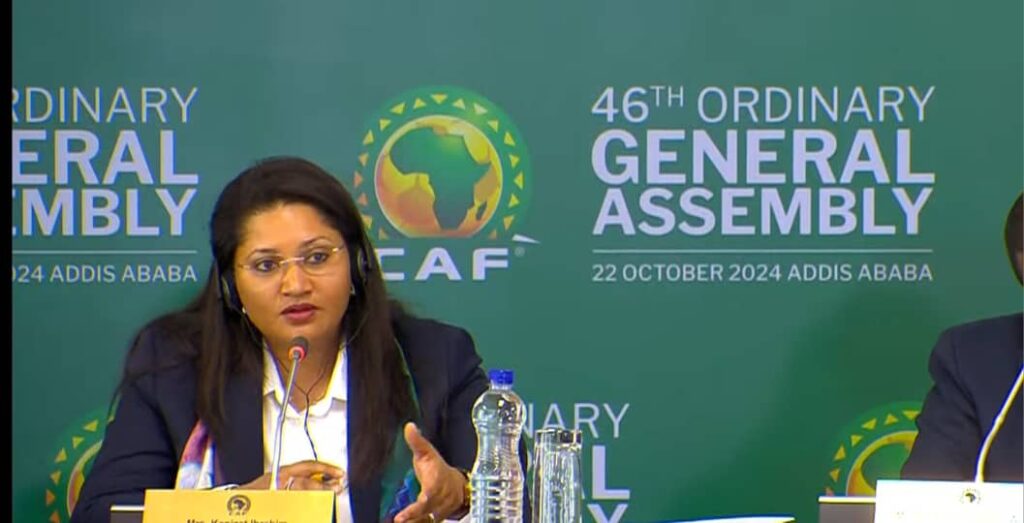
She expressed her confidence that with continued efforts and support, African female teams will continue to excel and make their mark in the global football arena.
However, Madam Ibrahim also acknowledged that there is still work to be done to ensure the sustainable development of women’s football in Africa.
“This is where the role of journalists becomes crucial”, she stated. She urged media professionals to play their part in promoting and raising awareness about women’s football.
By giving it the attention and coverage, it deserves, journalists can effectively contribute to the growth and success of the game. Investing in women’s football not only benefits the sport itself but also has a positive impact on society.
It provides opportunities for young girls and women to participate in a sport that promotes physical fitness, teamwork, and leadership skills.
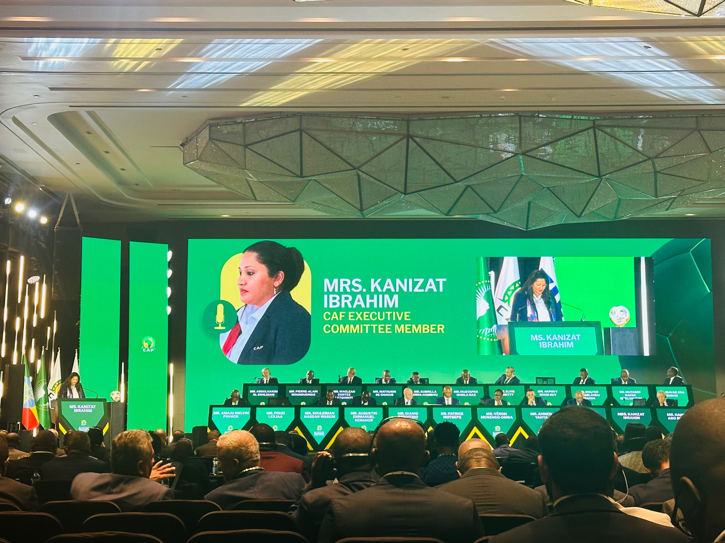
Moreover, it also breaks down gender stereotypes and empowers women to reach their full potential. The call for private sector investment in women’s football is not just limited to financial support.
Madam Ibrahim also emphasized the importance of creating a supportive and inclusive environment for female athletes, coaches, and administrators.
This includes providing equal opportunities and resources, as well as addressing issues such as gender discrimination and unequal pay.
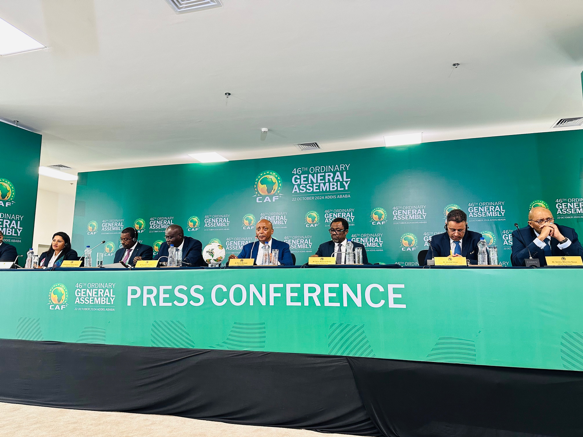
In conclusion, Madam Ibrahim’s bold plea for private sector investment in women’s football serves as a reminder that the success and growth of the sport rely on the collective efforts of various stakeholders.
With the right support and resources, African female footballers can continue to shine and inspire future generations.
“Let us all join hands in promoting and investing in women’s football, and truly make it a game for all!” she ended passionately.

